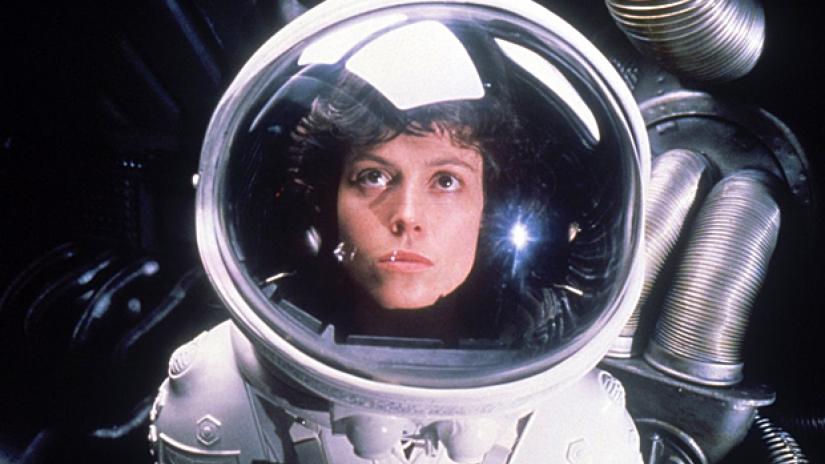
Who's Better Suited For Space: Men or Women?
Share
Something topical has arisen after the Oct. 18 all-woman voyage into space aboard the ISS.
We have a young high schooler wanting to know a bit more than men are from mars and women are from Venus.
So let us dive in headfirst and: Ask ARSE.
"Hey Arse,
We learned about the all women's spacewalk outside the ISS the other week and it got me thinking why it took so long?
Is it just a progress thing where women are getting equal opportunities?
Or are women just not as good as men in space?
I'm worried about asking because I don't want it to be true, but like a real scientist, I have to find the answer whether I like it or not.
Thanks,
Kelsi."
Thank you for the letter Kelsi and we have great news for you.
Women haven't been kept out of space for anything other than NASA being a boys club.
It might sound strange for us to say that's good news, what we mean is it is definitely NOT any limitations on women as a sex.

Within the health data of women applying for space programs in the 1960s, there are still quotes on record that say;
"...Aerospace scientists declared women to be too complicated and largely irrelevant,"
Add to this the lack of equipment for women.
In the 1960s - again - Betty Skelton, an aerial acrobatics pilot versed in the forces expected of astronauts, applied for a position as an astronaut.
Only she had to wear a man's suit for the physical readiness test with a belt securing the suit to her and the arms and legs rolled up.
Could you imagine doing a rigorous athletic test to determine your suitability whilst fighting the sleeves and pants of your own suit?
The civil rights movement that declared sex-based discrimination illegal was still a few years away in 1962.

Prior to the passing of the nill, female pilot Jerrie Cobb and astronaut candidate Jane Hart petitioned to Congress that NASA's conduct was discriminatory.
During the hearing, astronaut John Gleen shut the ladies down saying;
"The men go off and fight the wars and fly the airplanes and come back and help design and test and build them".
"The fact that women are not in this field is a fact of our social order,"
So that settles the first question on why it took so long and the second of women getting more opportunities.
Your third question about the suitability of women is entirely another story that you might find interesting...
Women are more suited to be astronauts than men.
For a few reasons, so keep reading.
Firstly...

Women's minds are uniquely stronger and suited to space.
Before the 60s when much of the above discrimination took place, a fellow named Dr Lovelace tested male astronauts for their potential in space.
Privately, he tested women too and founded the Women in Space Program specifically to measure their suitability.
A lot of this data suggested women are better suited for space.
One important factor was that women regularly performed better at being isolated for long periods of time.
'Cabin fever' or the feeling of irritability being stuck in a closed environment for a longer period of time hit men harder than women and the symptoms made the men much more erratic.
... And potentially dangerous.
Men score lower on mental tests in confined conditions with others and have a lower tolerance for personal space invasion.
Researchers have known since the British Antarctic Surveys that women are significantly well adapted to isolation and close-quarters living in extreme environments.

In space, the two largest mental health hurdles are;
- the need to see physically see Earth.
- Contact with home.
In space, communications are limited and on longer proposed voyages like Mars will not allow the crew to see Earth for nearly 3 years.
Astronauts are sometimes forced to go without communication with Earth for upwards of 44 minutes at a time.
And that's for a basic text message.
Doesn't sound like much, but picture waiting 44 minutes to have a conversation with someone via text and the data you send is limited.
But it doesn't end with women's grey matter.

Women's bodies are more efficient and better suited for space.
The data from Dr Lovelace showed that 12 women out of 19 candidates passed the 87 physicals the same as men.
The discrepancy in successful applicants to failure is similar to that of their male counterparts.
Sadly, the Women in Space Program was discontinued and the data was never publically published.
Why?
The Civil Rights bill was still not yet in effect.
Today we understand that women have some unique abilities to withstand the void of space.
Men and women don't differ too much in terms of bone density loss, alertness in long stretches, quality of sleep, and stress space.
Provided it's not isolated which the data shows men do not score as well.

Female weight is lower than men on average.
This means less fuel and less oxygen consumption.
Also, smaller bodies mean less food consumption.
Women maintain a healthier weight in stringent caloric restriction scenarios that astronauts sometimes find themselves in too.
Less oxygen and less food also mean less waste that needs to be disposed of.
For a trip to Mars which is an expected three-year journey, women are much more preferable than men.
Women also show better resilience to zero gravity eye issues as fluid sloshes around and hearing sensitivity of women is much hardier than men as aging occurs.
This is of importance to astronauts as frequencies of equipment on board for long periods of time may damage hearing.
We've all heard of the dreaded man-flu and that has some scientific backing to it.
Women's immune systems are generally stronger than men's. If crews get sick on a voyage for months or years at a time it could spell disaster.
And there you have it.
Women are more durable mentally and physically to withstand the conditions of space and make great pioneers who thrust into the deep unknown!
Thanks again for the question Katy and keep looking to the stars.
Love spreading ARSE?
Consider waving the Space Australia flag with your own supporter merch at the link below.
#Space_Aus




